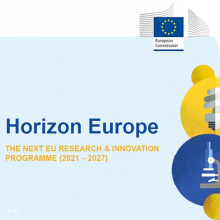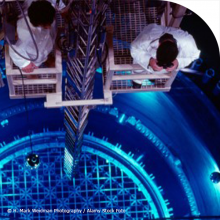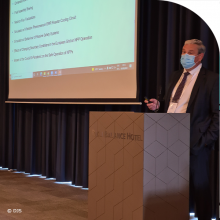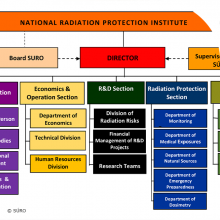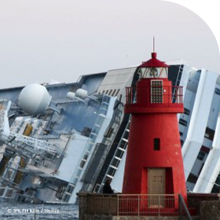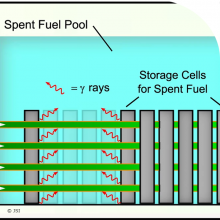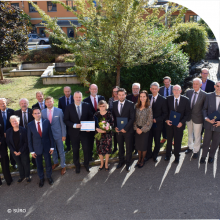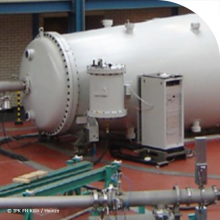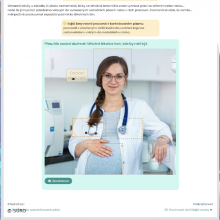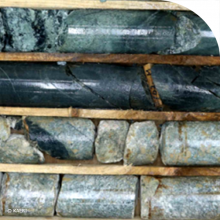News from ETSON and its members*
IRSN will coordinate a reply to EURATOM’s 2021-2022 call for applications recently published by the European Commission, regarding the creation of a partnership for radiation protection research.
Researchers worldwide are working on small modular reactors (SMR) and microreactors (very small modular reactor, vSMR). Many of these new reactor concepts are being developed for specific applications and have special core geometries. In order to be able to simulate the neutron-physical behaviour of these cores, GRS is developing the simulation code FENNECS (Finite ElemeNt NEutroniCS).
The jubilee 30th NENE2021 conference was attended by record 236 participants from 22 countries. Varied conference program was accompanied by the ENEN & OECD-NEA Workshop regarding nuclear education and training and the ENEN Ph.D. Event competition.
The National Radiation Protection Institute - SÚRO v.v.i. - became the youngest member of ETSON from January 1, 2021. It replaced the Research Centre Řež (CV Rez), which had been the TSO in the Czech Republic since 2011.
To ensure the safe operation of technical installations such as nuclear power plants (NPPs), it is important to continuously identify and analyse possible risk factors. In addition to technical safety, the so-called human factor, i.e. human influence and contribution, is of crucial importance for the safe operation of installations. Human-organisational aspects are therefore an aspect of safety research that should not be underestimated. In a recent study, GRS scientists have identified organisational factors that can have a negative influence on plant safety. These are specific characteristics that affect the structure of the organisation (organisational structure), the organisation of activities and processes (process organisation), and the corporate culture.
Enhanced solketal and acetol production was demonstrated in selected aqueous glycerol-acetone mixtures with γ radiation. This radiation process constitutes the first-reported, radiation-induced chemical process for solketal, and provides a notable example of the potential for unexplored renewable processes that can be realized using ionizing radiation - especially considering waste spent fuel pools as a source of catalytic energy.
The Award of the Minister of the Interior of the Czech Republic for Extraordinary Results in the Field of Security Research, Experimental Development and Innovation for year 2021 was won by a team from National Radiation Protection Institute (SÚRO) and from NUVIA Czech Republic. The award was handed over on 30 September 2021 at the headquarters of SÚRO.
The mineral graphite is used in some types of reactors and can be activated by neutron radiation, i.e. converted into radioactive isotopes. In order to select a suitable disposal option, the graphite must be thoroughly examined radiologically. However, many measuring methods are relatively costly and in turn produce new radioactive waste themselves. A team of researchers from GRS and the University of Cologne is therefore developing a method with which reactor graphite can be characterised quickly and reliably.
Today, in the COVID era, there is a rise of an online distance learning/teaching. Often, it was the only way how to provide education or training. Our institute - The National Radiation Protection Institute of The Czech Republic (SÚRO) - was also forced to adapt distance teaching tools.
Since the search for a repository site was restarted, crystalline rock, such as that found in Bavaria or Saxony, has also been considered as a host rock for a repository for high-level radioactive waste. Currently, experts from the GRS Repository Research Centre are working on several research projects to deepen the understanding of fundamental properties of the host rock and to develop concepts for assessing the safety of a repository in crystalline rock – in their own laboratory tests, in cooperation with foreign research partners, and as part of experiments carried out in the Swiss underground laboratory at Grimsel.
Pagination
Stay informed - subscribe to our newsletter.
Copyright · All rights reserved








